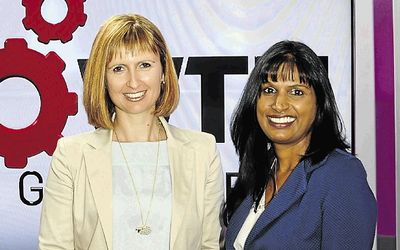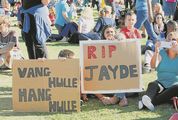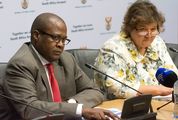DURING an outbreak of xenophobic attacks might not be the best time to ask about foreign workers being brought into the country — albeit not permanently — but for Expats On The Globe, a black economic empowerment level one company, it’s what they think about 24/7.
Expats are coming to undertake specialist assignments in SA across all spheres of industry, from motor manufacturing to building power stations, to construction.
Expats On The Globe, owned and run by directors Connie Peter and Marussia van der Merwe, uses a three-pronged approach which it believes is necessary for a "successful assignment" in SA.
It makes sure all the legal and business compliances, such as visas and working permits, are in place; it ensures that the relocation issues of day-to-day living are addressed, and, something it deems essential, it tackles "intercultural orientation" for expats joining the melting pot of SA’s diversity.
It is this latter aspect that makes the company unique.
Van der Merwe, who is Bulgarian-born, came to SA in 1997 and is now a citizen. She confirms that not addressing intercultural issues can lead to a failed assignment just as easily as not getting the paperwork right or the job not being a good fit.
"Relocation is about finding the right house; whether it should be north or south-facing; where to shop; what school is right for the children. A silly example: in Europe, hot taps are always on the right; here they’re on the left. Sometimes that drives people crazy," she says.
"We work with expats and with the spouse, partner or children if they are coming too. We make sure they don’t get frustrated by the small things — and not-so-small things.
"How do you plan your day around power outages, especially if you are coming from a wealthy country that has no experience of such things? But often it’s the culture shock that isn’t addressed adequately."
...
EXPATS On The Globe offers customised intercultural training that takes into account not only the diversity of SA but also the cultural, sociopolitical, linguistic and geographical reality of the expats’ backgrounds.
"We go into the history of SA and what has shaped it and its cultures over the past 100 years, so when the expats and their partners encounter people and have to interact with them they are already mindful of what has informed how people react and communicate with them," says Van der Merwe.
"Consequently, they don’t take things the wrong way – or do or say the ‘wrong’ things themselves."
As the expat (still most often a man) has an inbuilt and instant "infrastructure" as he is taken into the world of work with its concomitant social and business support, it is often the wives who are left to fend for themselves. But Peter says intercultural faux pas can happen in the workplace too.
There are stories of European expats, coming from a country known for its advanced, precise and punctual manufacturing sector, walking on to a shop floor and telling everyone they are stupid and lazy, which doesn’t always go down well.
"About 90% of the time, problems, stressful assignments or negative incidents are simple misunderstandings; it’s people talking past each other and not being aware of other cultures and judging others by their own culture," says Van der Merwe.
Some clients say they don’t need the customised intercultural orientation as "their PA is taking the incoming expat on a Soweto tour" and handing him a few pages on "South African culture".
Van der Merwe speaks of, for example, a US company having its own "Africa specialist" (yes, the whole, homogeneous continent) speaking to a potential expat and thinking that’s enough. But just as each country within Africa has its own set of legal compliances, which is Peter’s speciality, so each has its own cultural specifics, which is what Van der Merwe concentrates on.
Bolloré Africa Logistics is one of Expats On The Globe’s largest clients. Its regional human resources director, Meryl Bengtsson, says the company works in an environment in which "speed and individual attention is required and expats provides this for us".
Bolloré "deals with very complicated logistical challenges and requires specialists. Having the right people in place not only grows our company but has a knock-on effect to our suppliers and, thus, the economy," Bengtsson adds.
With SA’s skills shortage, foreign expertise will be required — but expats are never a company’s first choice, say Van der Merwe and Peter. Bringing expat skills into SA is expensive; only after all local sources have been scoured will this step be taken. And while the Department of Trade and Industry is attentive to this — Peter has an excellent relationship with the department, which she confirms is helpful and responsive — the Department of Labour protects local workers. The two departments almost seem to directly cancel each other out.
Peter says local compliance with the often "unrealistic" demands of the Department of Labour in terms of skills transfer can be difficult.
"It’s always a challenging conversation to have, say with the Chinese — and more and more Brics specialists are being deployed here — about the mandate in terms of immigration and labour law," she says.
"There is a lot of focus in providing a training and development plan for the government. It is happening, but not as aggressively as it should."
These foreign specialists are busy and often working on time-bound projects, so how they would find the time to mentor others is not clear.
"As SA is in crisis, in terms of infrastructure issues and things needing to happen quickly to address them, what immigration and labour expects can be quite unreasonable," says Peter.
Also, these skills (and it is the skills that count, not necessarily the person they are associated with) are often peripatetic by nature, and expected and obliged to move on to the next project quickly. And they have skills that took 15 years to acquire; they cannot be passed on in a single assignment.
"The Department of Trade and Industry is very open," says Peter. "The moment they see an investment opportunity, they’re always willing to have a discussion with us. But Home Affairs is the nuts and bolts of getting a physical permit and other compliances. There have been enormous challenges, especially with the new immigration regulations introduced last year.
"I worked with Home Affairs for many years and there was a period when they really responded and were available on their cellphones or via e-mail. We met on a monthly basis, held workshops — that was in about 2008.
"They had a unit for large accounts that has changed to the corporate account unit, which I helped them set up specifically to facilitate large companies importing critical skills into this country."
But last May the department announced that most worrying business phrase: "new leadership".
"It was like night and day. They said they would only deal with corporates directly. We all have the staff’s cellphone numbers, their e-mail addresses, and we simply can’t get any response. Nor can our clients, corporates who call them directly," says Peter.
"Our approach is to keep calm and keep calling. Be persistent; let them know we are simply not going away. It’s got to the point where I tweet the minister of Home Affairs, hoping he’ll respond."
The constant need for speed is one of the reasons Bolloré became a client.
"Turnaround time and personalised service are important, but more importantly, Expats On The Globe have a fantastic network within the immigration department and other related departments and so know who to turn to if there are difficulties or problems which need to be navigated and reach people at the highest level to assist in resolving problems with their intervention," says Bengtsson.

Marussia van der Merwe and Connie Peter, directors of Expats On The Globe, at BD-TV in Rosebank. Picture: FREDDY MAVUNDA
DURING an outbreak of xenophobic attacks might not be the best time to ask about foreign workers being brought into the country — albeit not permanently — but for Expats On The Globe, a black economic empowerment level one company, it’s what they think about 24/7.
Expats are coming to undertake specialist assignments in SA across all spheres of industry, from motor manufacturing to building power stations, to construction.
Expats On The Globe, owned and run by directors Connie Peter and Marussia van der Merwe, uses a three-pronged approach which it believes is necessary for a "successful assignment" in SA.
It makes sure all the legal and business compliances, such as visas and working permits, are in place; it ensures that the relocation issues of day-to-day living are addressed, and, something it deems essential, it tackles "intercultural orientation" for expats joining the melting pot of SA’s diversity.
It is this latter aspect that makes the company unique.
Van der Merwe, who is Bulgarian-born, came to SA in 1997 and is now a citizen. She confirms that not addressing intercultural issues can lead to a failed assignment just as easily as not getting the paperwork right or the job not being a good fit.
"Relocation is about finding the right house; whether it should be north or south-facing; where to shop; what school is right for the children. A silly example: in Europe, hot taps are always on the right; here they’re on the left. Sometimes that drives people crazy," she says.
"We work with expats and with the spouse, partner or children if they are coming too. We make sure they don’t get frustrated by the small things — and not-so-small things.
"How do you plan your day around power outages, especially if you are coming from a wealthy country that has no experience of such things? But often it’s the culture shock that isn’t addressed adequately."
...
EXPATS On The Globe offers customised intercultural training that takes into account not only the diversity of SA but also the cultural, sociopolitical, linguistic and geographical reality of the expats’ backgrounds.
"We go into the history of SA and what has shaped it and its cultures over the past 100 years, so when the expats and their partners encounter people and have to interact with them they are already mindful of what has informed how people react and communicate with them," says Van der Merwe.
"Consequently, they don’t take things the wrong way – or do or say the ‘wrong’ things themselves."
As the expat (still most often a man) has an inbuilt and instant "infrastructure" as he is taken into the world of work with its concomitant social and business support, it is often the wives who are left to fend for themselves. But Peter says intercultural faux pas can happen in the workplace too.
There are stories of European expats, coming from a country known for its advanced, precise and punctual manufacturing sector, walking on to a shop floor and telling everyone they are stupid and lazy, which doesn’t always go down well.
"About 90% of the time, problems, stressful assignments or negative incidents are simple misunderstandings; it’s people talking past each other and not being aware of other cultures and judging others by their own culture," says Van der Merwe.
Some clients say they don’t need the customised intercultural orientation as "their PA is taking the incoming expat on a Soweto tour" and handing him a few pages on "South African culture".
Van der Merwe speaks of, for example, a US company having its own "Africa specialist" (yes, the whole, homogeneous continent) speaking to a potential expat and thinking that’s enough. But just as each country within Africa has its own set of legal compliances, which is Peter’s speciality, so each has its own cultural specifics, which is what Van der Merwe concentrates on.
Bolloré Africa Logistics is one of Expats On The Globe’s largest clients. Its regional human resources director, Meryl Bengtsson, says the company works in an environment in which "speed and individual attention is required and expats provides this for us".
Bolloré "deals with very complicated logistical challenges and requires specialists. Having the right people in place not only grows our company but has a knock-on effect to our suppliers and, thus, the economy," Bengtsson adds.
With SA’s skills shortage, foreign expertise will be required — but expats are never a company’s first choice, say Van der Merwe and Peter. Bringing expat skills into SA is expensive; only after all local sources have been scoured will this step be taken. And while the Department of Trade and Industry is attentive to this — Peter has an excellent relationship with the department, which she confirms is helpful and responsive — the Department of Labour protects local workers. The two departments almost seem to directly cancel each other out.
Peter says local compliance with the often "unrealistic" demands of the Department of Labour in terms of skills transfer can be difficult.
"It’s always a challenging conversation to have, say with the Chinese — and more and more Brics specialists are being deployed here — about the mandate in terms of immigration and labour law," she says.
"There is a lot of focus in providing a training and development plan for the government. It is happening, but not as aggressively as it should."
These foreign specialists are busy and often working on time-bound projects, so how they would find the time to mentor others is not clear.
"As SA is in crisis, in terms of infrastructure issues and things needing to happen quickly to address them, what immigration and labour expects can be quite unreasonable," says Peter.
Also, these skills (and it is the skills that count, not necessarily the person they are associated with) are often peripatetic by nature, and expected and obliged to move on to the next project quickly. And they have skills that took 15 years to acquire; they cannot be passed on in a single assignment.
"The Department of Trade and Industry is very open," says Peter. "The moment they see an investment opportunity, they’re always willing to have a discussion with us. But Home Affairs is the nuts and bolts of getting a physical permit and other compliances. There have been enormous challenges, especially with the new immigration regulations introduced last year.
"I worked with Home Affairs for many years and there was a period when they really responded and were available on their cellphones or via e-mail. We met on a monthly basis, held workshops — that was in about 2008.
"They had a unit for large accounts that has changed to the corporate account unit, which I helped them set up specifically to facilitate large companies importing critical skills into this country."
But last May the department announced that most worrying business phrase: "new leadership".
"It was like night and day. They said they would only deal with corporates directly. We all have the staff’s cellphone numbers, their e-mail addresses, and we simply can’t get any response. Nor can our clients, corporates who call them directly," says Peter.
"Our approach is to keep calm and keep calling. Be persistent; let them know we are simply not going away. It’s got to the point where I tweet the minister of Home Affairs, hoping he’ll respond."
The constant need for speed is one of the reasons Bolloré became a client.
"Turnaround time and personalised service are important, but more importantly, Expats On The Globe have a fantastic network within the immigration department and other related departments and so know who to turn to if there are difficulties or problems which need to be navigated and reach people at the highest level to assist in resolving problems with their intervention," says Bengtsson.




















Change: 0.40%
Change: 0.47%
Change: -0.49%
Change: 0.53%
Change: 1.03%
Data supplied by Profile Data
Change: 1.71%
Change: 1.28%
Change: 0.40%
Change: 0.00%
Change: 1.64%
Data supplied by Profile Data
Change: -1.27%
Change: 0.00%
Change: 0.05%
Change: -0.08%
Change: 0.35%
Data supplied by Profile Data
Change: -0.02%
Change: 0.21%
Change: -0.06%
Change: 0.53%
Change: 0.70%
Data supplied by Profile Data